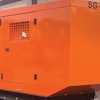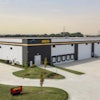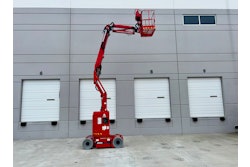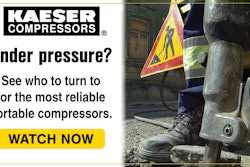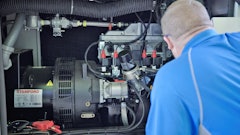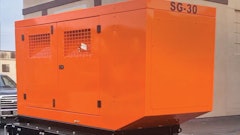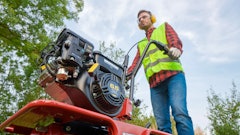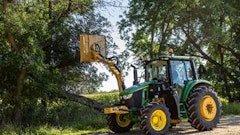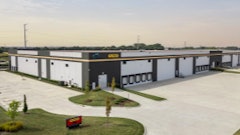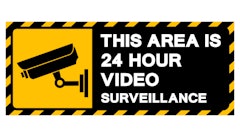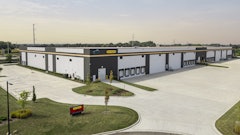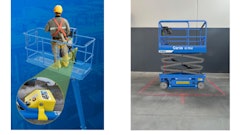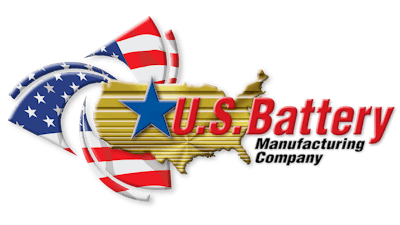
*This article is sponsored by U.S. Battery
With so many Lithium-ion batteries on the market, it isn't easy to find high-quality options that are built to higher standards. The quality of a battery can impact the performance of your fleet of battery-powered equipment and its overall safety in various working conditions. One of the easiest ways to distinguish a high-quality Lithium-ion battery from the rest is to look for those that come with an Underwriters Laboratories (UL) certification.
The UL is a global organization that tests and certifies products for safety. It developed a standard known as UL 2271, which is the pinnacle of safety standards for batteries used in several types of equipment. This specific standard sets requirements for the design, construction, and testing of batteries used in light electric vehicles, such as lawnmowers, some forklifts, electric utility vehicles, floor cleaning machines, and more.
Knowing that customers can often abuse rental equipment over time, it can be comforting to know that the battery powering it has the UL 2271 Certification to withstand the challenge safely. This certification process involves a variety of procedures to see how well batteries perform against various forms of abuse, including overcharging, impacts, short-circuiting, and overheating. Batteries receiving the UL 2271 certification ensure that the battery in your equipment has adequate measures in place to prevent fire or explosion when exposed to these adverse conditions.
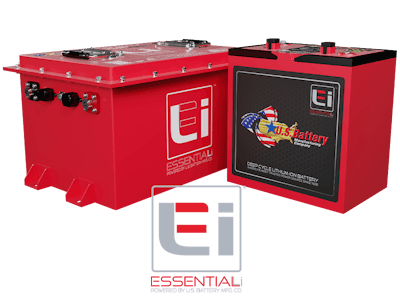 The Essential Li® Lithium-ion batteries from U.S. Battery offer zero maintenance, reduced weight, faster charging, and longer average cycle life compared to other chemistries. U.S. Battery
The Essential Li® Lithium-ion batteries from U.S. Battery offer zero maintenance, reduced weight, faster charging, and longer average cycle life compared to other chemistries. U.S. Battery
Complying with UL Standards Versus Meeting UL Certification
Battery manufacturers who go through the lengthy and costly process of putting their products through the UL Certification demonstrate a commitment to providing high-quality standards and an assurance of optimum performance.
Some battery manufacturers bypass the certification process altogether and label their products with wording stating the battery "complies" with UL certification standards. For rental companies, it's essential to distinguish between the two, as the wording can confuse many rental fleet managers.
Complying with UL Standards: This is a broad term meaning a product is designed and built according to the specifications laid out in a UL standard, but has not undergone the rigorous testing completed by UL to confirm it meets those standards.
UL Certified: This designation indicates that UL has tested the product in accordance with relevant standards and confirmed that it meets these standards. Meeting these standards allows the manufacturer to display the UL mark on the product.
Obtaining UL certification for products comes with a high cost and stringent requirements, so it is understandable why many battery manufacturers choose not to undergo UL 2271 certification and instead list UL compliance in their literature. Without actual UL certification, however, it is challenging to determine the actual safety of the battery for use in any rental equipment.
UL Certification
U.S. Battery Manufacturing is a prime example of a battery manufacturer that has high standards for its products. The company's Essential Li® deep-cycle 24V and 48V batteries for electric utility vehicles, floor cleaning machines, and other applications have undergone various safety testing procedures to achieve a UL 2271 Certification. The company goes even further to test the batteries in other areas, including the following certifications:
UN 38.3: Certification by the U.S. Department of Transportation to be safe for transport in the U.S. and globally.
UL 2580: Certification by UL for the quality and safety of lithium-ion battery (or cell) used in electric vehicles (EVs). Proves the battery has passed testing through various damaging scenarios for electrical, mechanical, thermal, and environmental safety. Additionally, the manufacturer-specified charge and discharge temperatures fall within the specified parameters.
In general, deep-cycle lithium-ion batteries contain sophisticated electrical components, including their lithium cells, a battery management system (BMS), sensors, wiring, enclosures, and cell support structures. With all these components packed into a single case, battery manufacturers must ensure that the entire pack meets safety standards and is protected against vibration, dust, and moisture. This is why a quality deep-cycle battery product will undergo various tests and certification processes, proving it meets the highest safety and durability standards in the industry.
For more information on U.S. Battery Manufacturing's line of deep-cycle battery products, visit www.usbattery.com.


